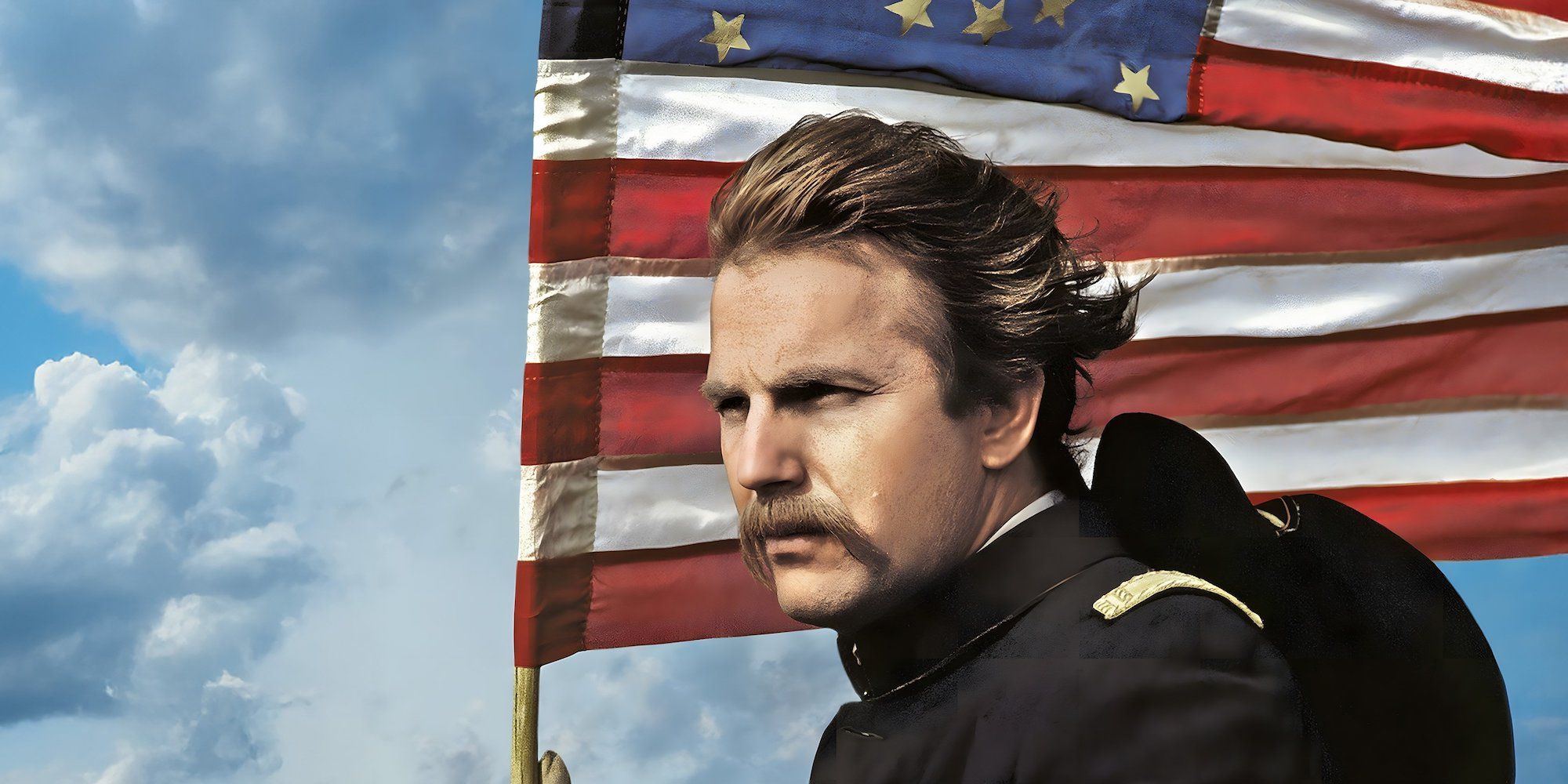The Civil War remains America’s defining tragedy, an open wound in the nation’s history marked by blood, betrayal, and the brutal fight for freedom. And while books and textbooks frame the facts, cinema more vividly captures the chaos, the emotion, and the scale of its consequences.
With this in mind, the following ten movies don’t just retell history, they wrestle with it. They give the war faces, voices, and moral weight that lingers long after the credits roll. From battlefield epics to quiet personal dramas, these picks illuminate the complicated legacy of a conflict that nearly broke the country in two—and still echoes today.
10
‘The Red Badge of Courage’ (1951)
Directed by John Huston
“Was I a coward? I must be a coward.” The Red Badge of Courage adapts Stephen Crane‘s psychological novel with stripped-down intensity. It’s a war film without grand victories or stirring speeches. Instead, it follows a single young soldier (Audie Murphy, the soldier-turned-actor who inspired Inglourious Basterds‘ Friedrich Zoller) as he battles fear more than bullets. Made just after World War II, the film captures the timeless inner war of a man trying to decide whether courage is an instinct or a choice.
Murphy plays the role with welcome restraint, and director John Huston keeps the focus claustrophobic. The battle scenes are chaotic, but not romanticized. They’re muddy, anonymous, and terrifying. While some would argue that there are no true anti-war films, The Red Badge of Courage does at least dissect the shame and silence war leaves behind. While originally butchered by the studio, even in its shorter form, the film remains one of the most psychologically honest portrayals of combat in American cinema.
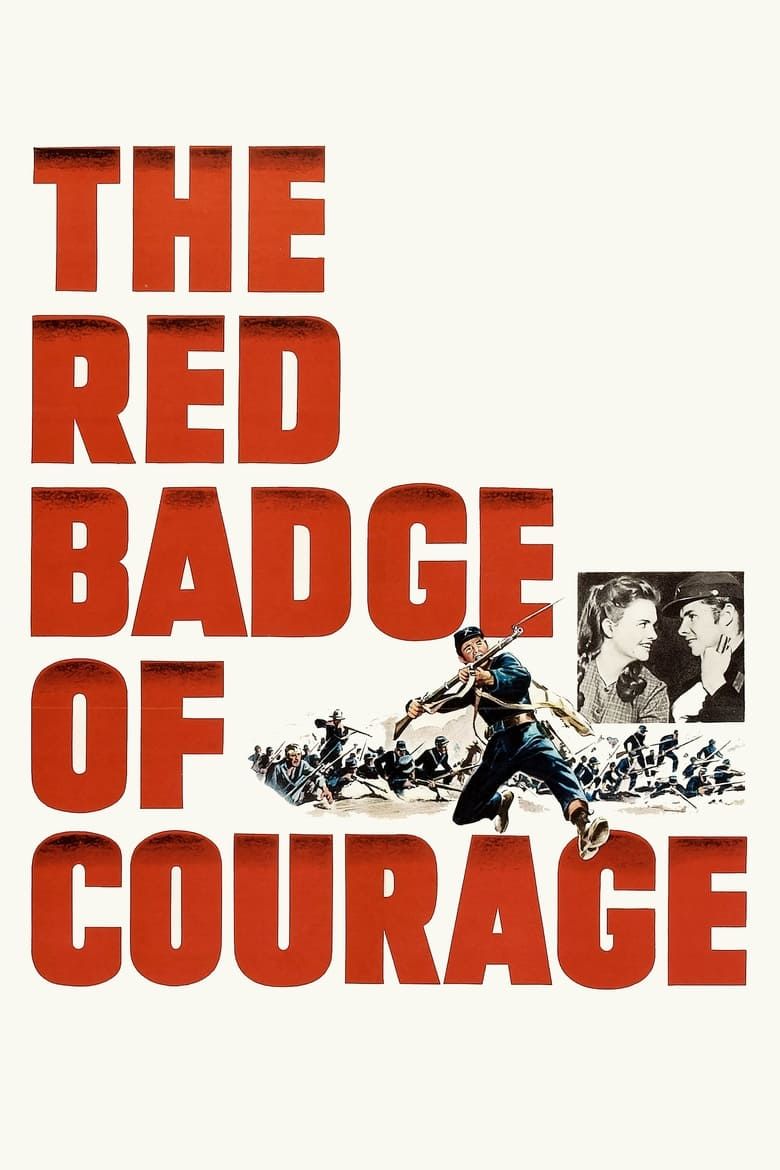
The Red Badge of Courage
- Release Date
-
September 27, 1951
- Runtime
-
69 minutes
Cast
-

-

Bill Mauldin
The Loud Soldier
-

Douglas Dick
The Lieutenant
-

Royal Dano
The Tattered Man
9
‘Ride with the Devil’ (1999)
Directed by Ang Lee
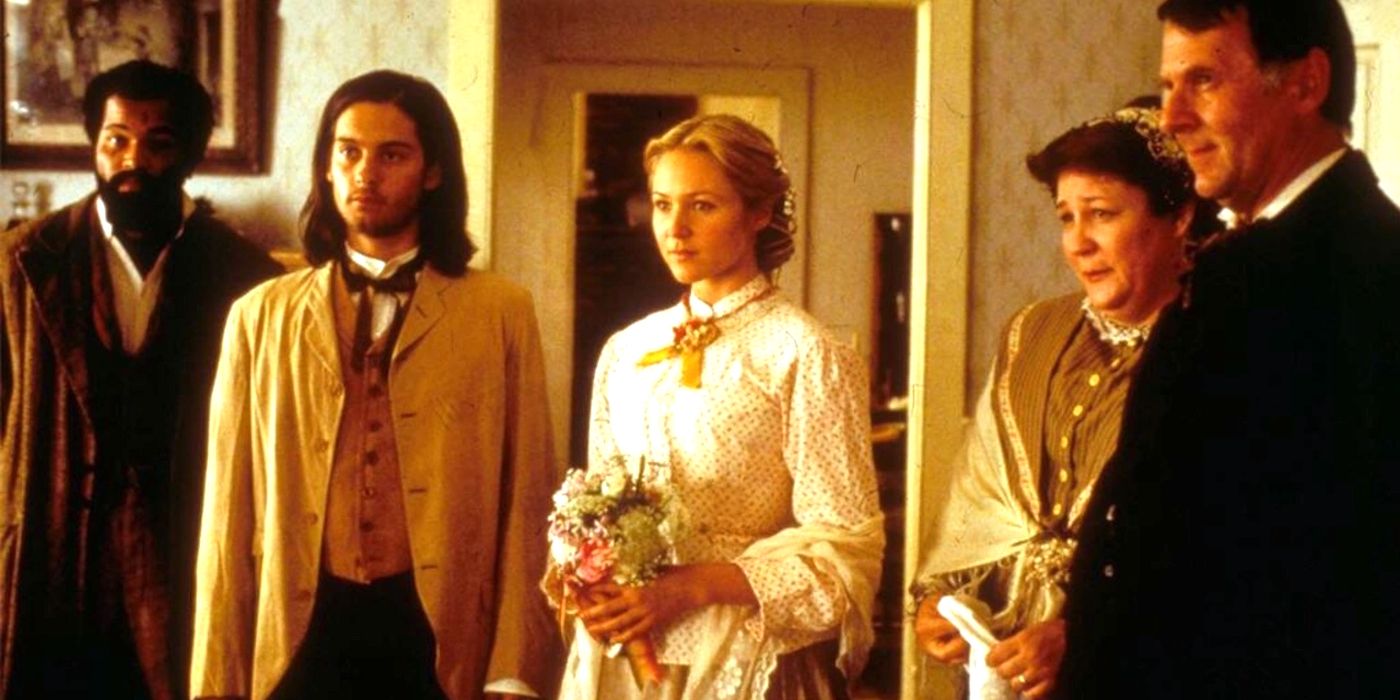
“You don’t know what it’s like to be in a war, do you?” Ride with the Devil is a Civil War movie that refuses easy definitions. It follows bushwhackers (pro-Confederate guerrilla fighters in Missouri) and focuses on four young men, including a German immigrant (Tobey Maguire) and a freed Black man fighting for the South (Jeffrey Wright). Through these characters, the film explores shifting loyalties and moral ambiguity far from the traditional battlefield.
This is one of Ang Lee‘s less well-known movies. Indeed, it was a colossal box office bomb, grossing just $635,000 against a budget of $38m. Nevertheless, it’s well-made and offers more than enough food for thought to justify a viewing. What makes it essential is its refusal to simplify motives or valorize any side. It’s about the small, painful choices people make when the world stops making sense. Wright’s performance is especially haunting, layered, stoic, and tragic.
8
‘Cold Mountain’ (2003)
Directed by Anthony Minghella
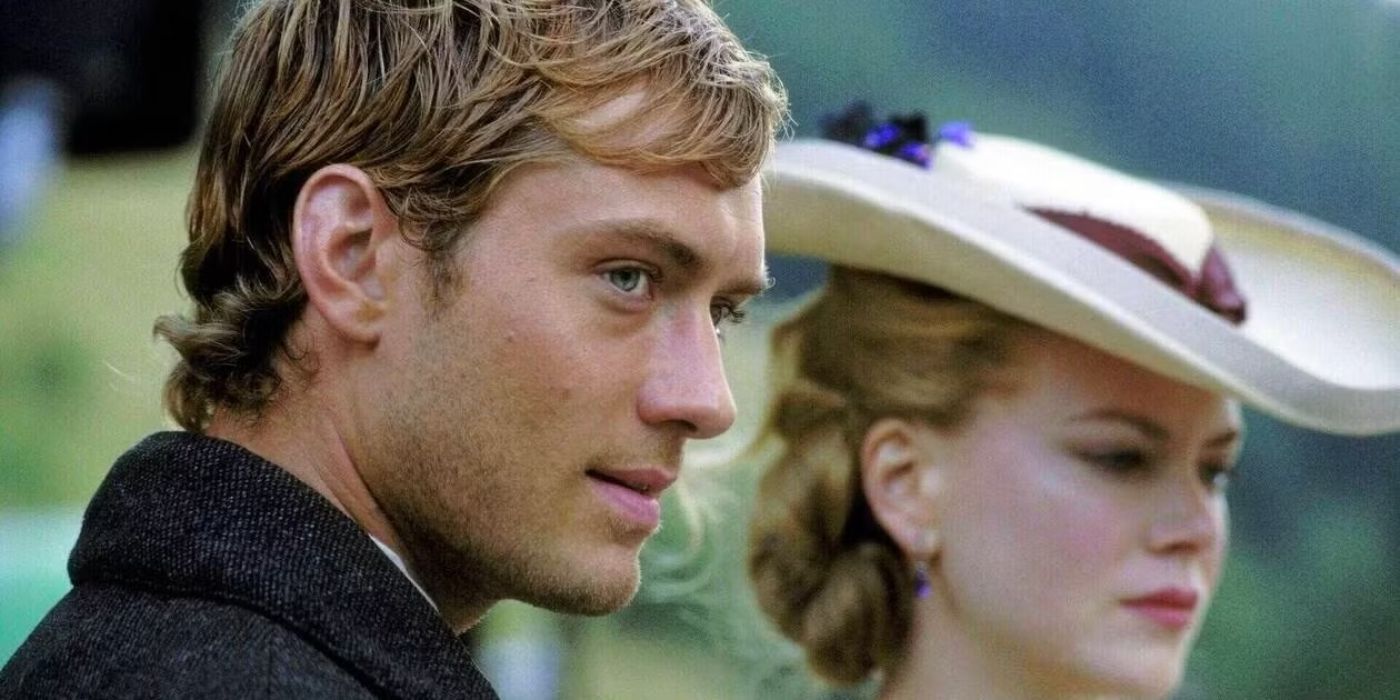
“I imagine God is weary of being called down on both sides of an argument.” Cold Mountain is a Civil War story told through separation, survival, and longing. Inman (Jude Law), a Confederate soldier wounded in battle, deserts and makes the long journey home to Ada (Nicole Kidman), the woman he loves. Along the way, he meets both kindness and cruelty, while Ada learns to rebuild a life amidst ruins. It’s part war film, part romantic epic, but mostly it’s about how war hollows people out.
The battle scenes are visceral and brutal, but the emotional toll is what lingers. Renée Zellweger‘s turn as Ruby earned her an Oscar, but it’s Law’s silent suffering and Kidman’s restrained resilience that form the movie’s heart. This is a film where the wounds of war are deepest in the soul. Anthony Minghella directs their struggles with lyrical sorrow, reminding us that not all casualties die on the battlefield. Some just come home different.
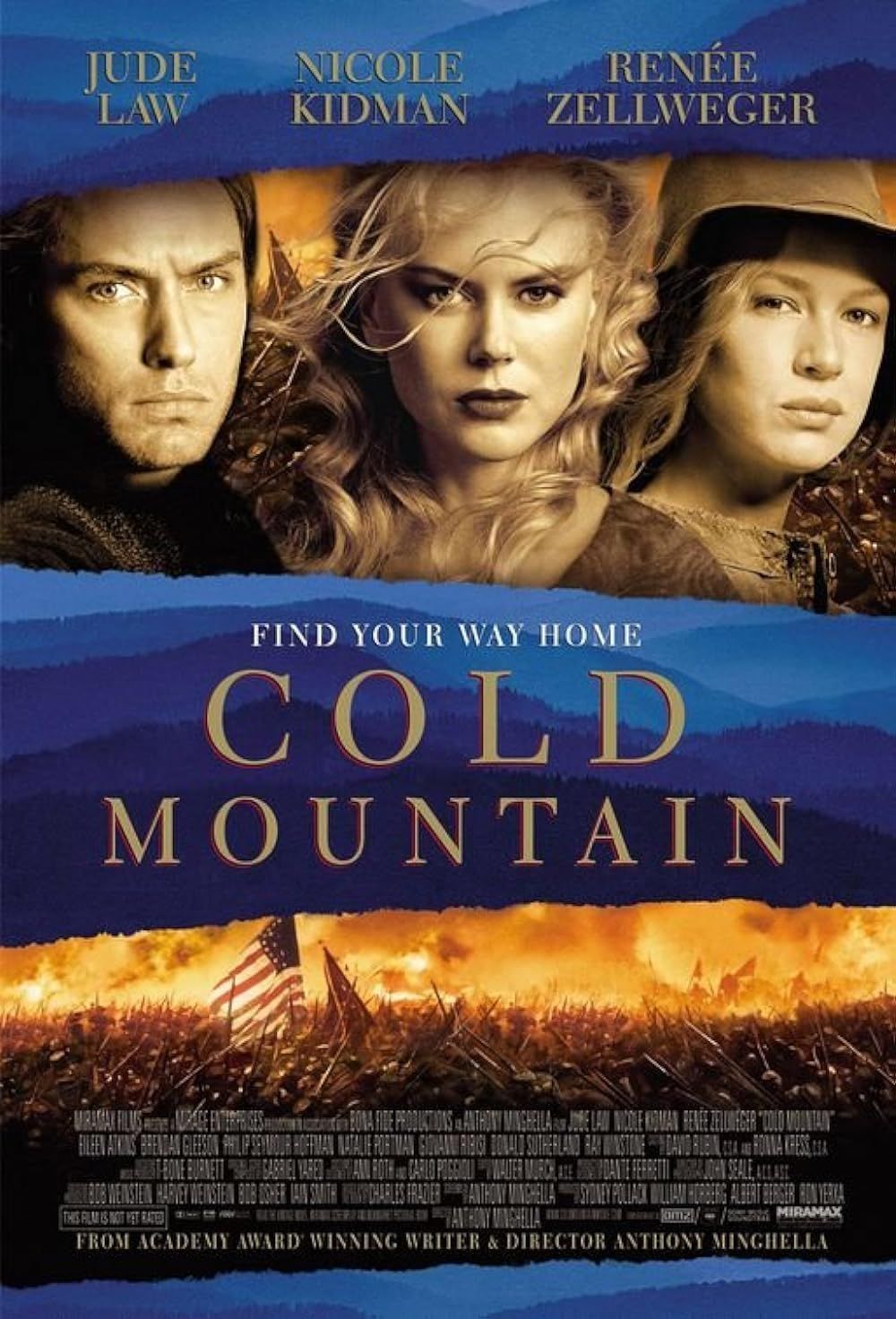
Cold Mountain
- Release Date
-
December 24, 2003
- Runtime
-
153 minutes
7
‘The Outlaw Josey Wales’ (1976)
Directed by Clint Eastwood
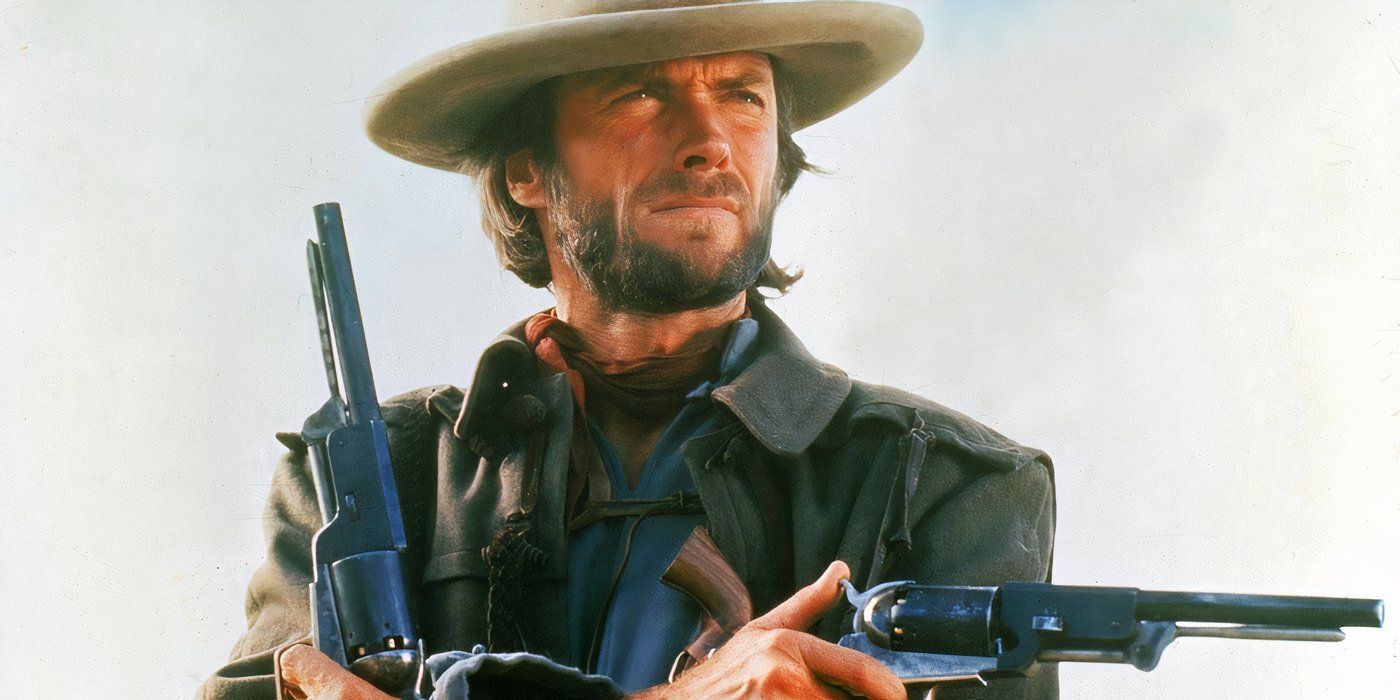
“Dyin’ ain’t much of a livin’, boy.” The Outlaw Josey Wales is a killer Western with an unusual amount of gloom and grit for its era. Clint Eastwood directs and stars as Josey, a Missouri farmer whose family is killed by Union soldiers. He joins a Confederate guerrilla band, but after the war ends, he refuses to surrender, becoming an outlaw. He gets up to most of the usual Western thrills, but with a revisionist edge. What sets this film apart is how it wrestles with what happens after the war.
Josey isn’t a symbol of Confederate pride. He’s a man trying to find peace in a land soaked with blood. Along the way, he builds a ragtag found family and begins to soften, but the scars of war are always near. Ultimately, the film is about redemption, not revenge, and Eastwood’s quiet intensity gives it weight. This is the Western icon at his best: mythic, mournful, and morally complicated.
6
‘Dances with Wolves’ (1990)
Directed by Kevin Costner
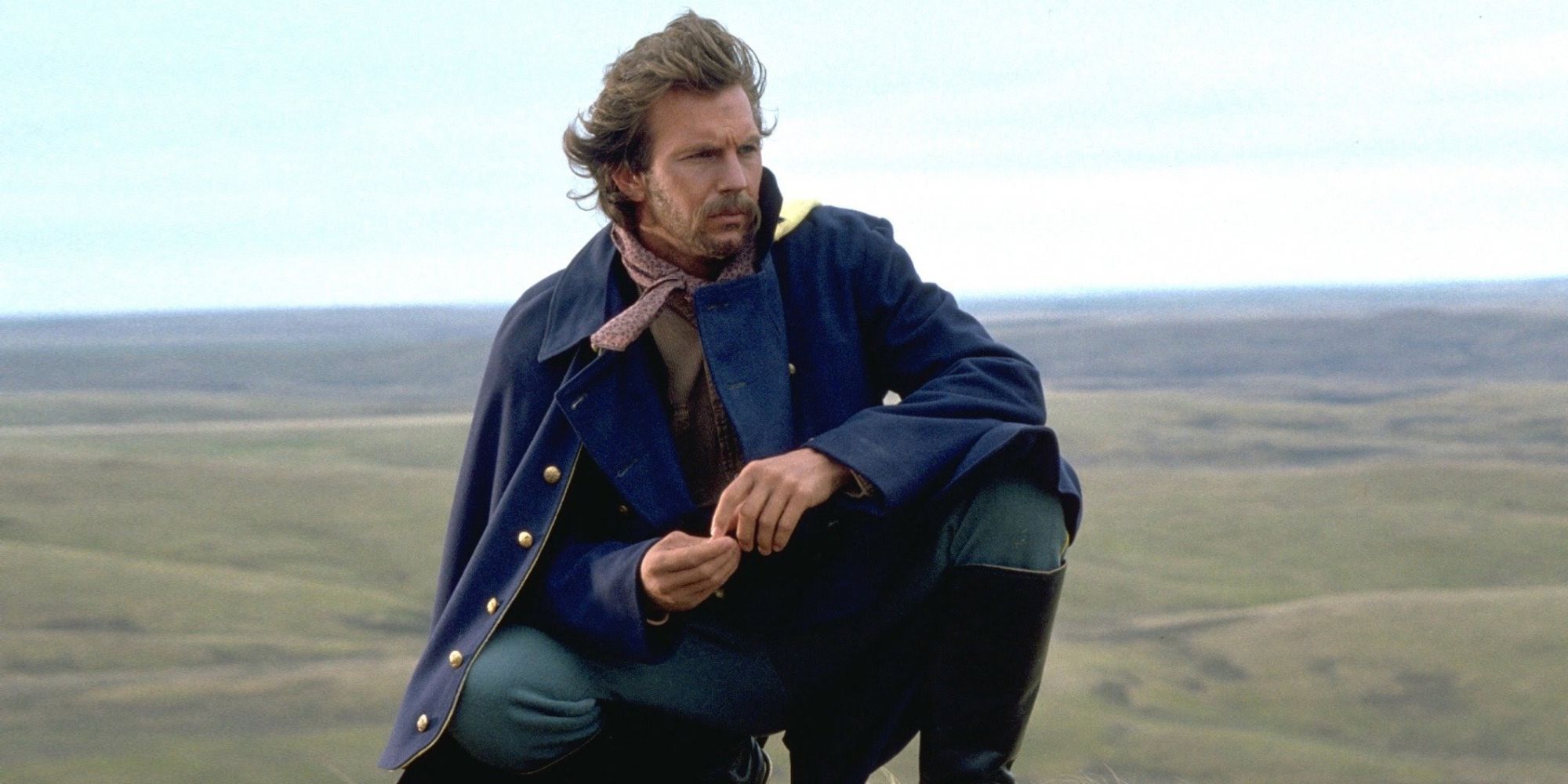
“I’ve always wanted to see the frontier… before it’s gone.” While not a traditional battlefield film, Dances with Wolves is inseparable from the Civil War’s shadow. Kevin Costner plays Lieutenant John Dunbar, a disillusioned Union soldier who is assigned to a remote Western outpost and gradually becomes part of a Lakota Sioux community. The war hovers in the background, but the real conflict is between two civilizations, one dying, one trying to survive.
Dances with Wolves is sweeping and idealistic, but it’s also unflinching in portraying the cost of expansion. Rather than being a stock “savior” hero, Dunbar is simply a man unlearning his assumptions. The movie’s real power lies in its elegy for a way of life extinguished by the very war it briefly escapes. Costner’s direction favors long silences, open landscapes, and the slow build of trust. Sure, it’s a little drawn out, but it won Best Picture for a reason: it dares to reframe the Civil War era from the edge, not the center.
5
‘Gettysburg’ (1993)
Directed by Ronald F. Maxwell

“There’s no glory in war. Only in the deeds of others.” Gettysburg is long, talky, and visually unfashionable, and also one of the most historically faithful war epics ever made. Based on the Pulitzer Prize-winning novel The Killer Angels, it dramatizes the pivotal 1863 battle through the eyes of both Union and Confederate officers. The movie is deeply committed to accuracy and moral complexity, aided by layered performances from the likes of Jeff Daniels and Tom Berenger.
The battle scenes are massive, but the soul of the film lies in its dialogue, its moral debates, its weariness, its reverence for conscience. It’s a movie more interested in why men fight than how they fight. On the acting front, Daniels gives perhaps the performance of his career, portraying his character Chamberlain as a thoughtful leader whose courage is rooted in decency, not bravado. Those who only know him from Dumb and Dumber and its ilk ought to check it out.
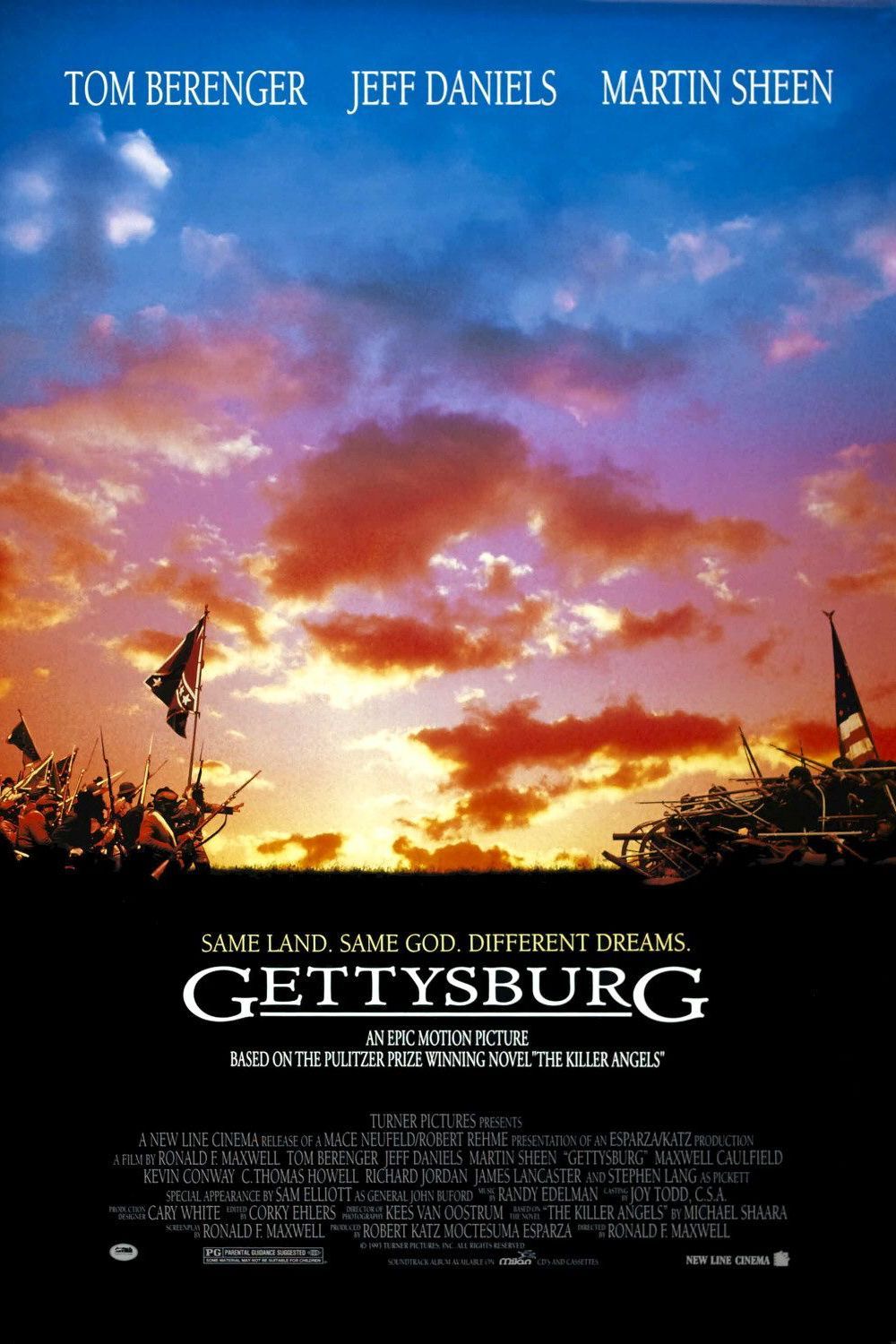
Gettysburg
- Release Date
-
October 8, 1993
- Runtime
-
254 Minutes
4
‘Gone with the Wind’ (1939)
Directed by Victor Fleming
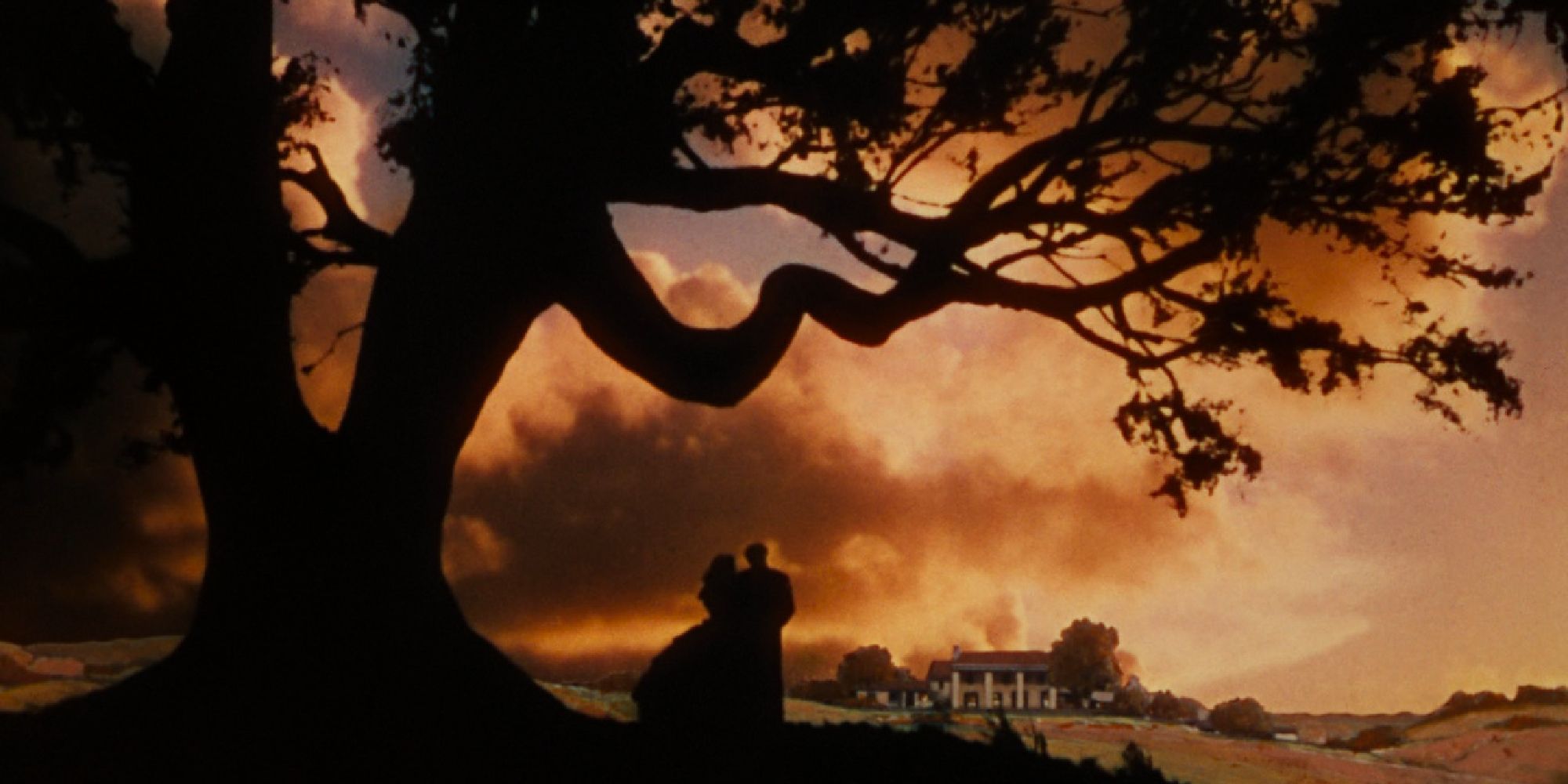
“As God is my witness, I’ll never be hungry again.” Few films loom as large in cinematic history as Gone with the Wind. Lavish, romantic, and controversial, it follows the spoiled Scarlett O’Hara (Vivien Leigh) as she claws her way through the South’s collapse during and after the Civil War. Rhett Butler (Clark Gable) smirks, plantations burn, and the myth of the Old South is immortalized (and problematized) in glorious Technicolor. Not for nothing, Gone with the Wind remains the highest-grossing movie ever, adjusted for inflation.
The film is undeniably a product of its time, romanticizing a system built on slavery while mostly sidestepping the Black characters. It’s also overlong, a little too sentimental, and sometimes a little kitschy. And yet, Leigh’s performance is iconic, and the movie’s scope and scale are still staggering. It’s essential not because it gets the war right, but because it reveals what Hollywood wanted to remember—and forget.
3
‘Lincoln’ (2012)
Directed by Steven Spielberg
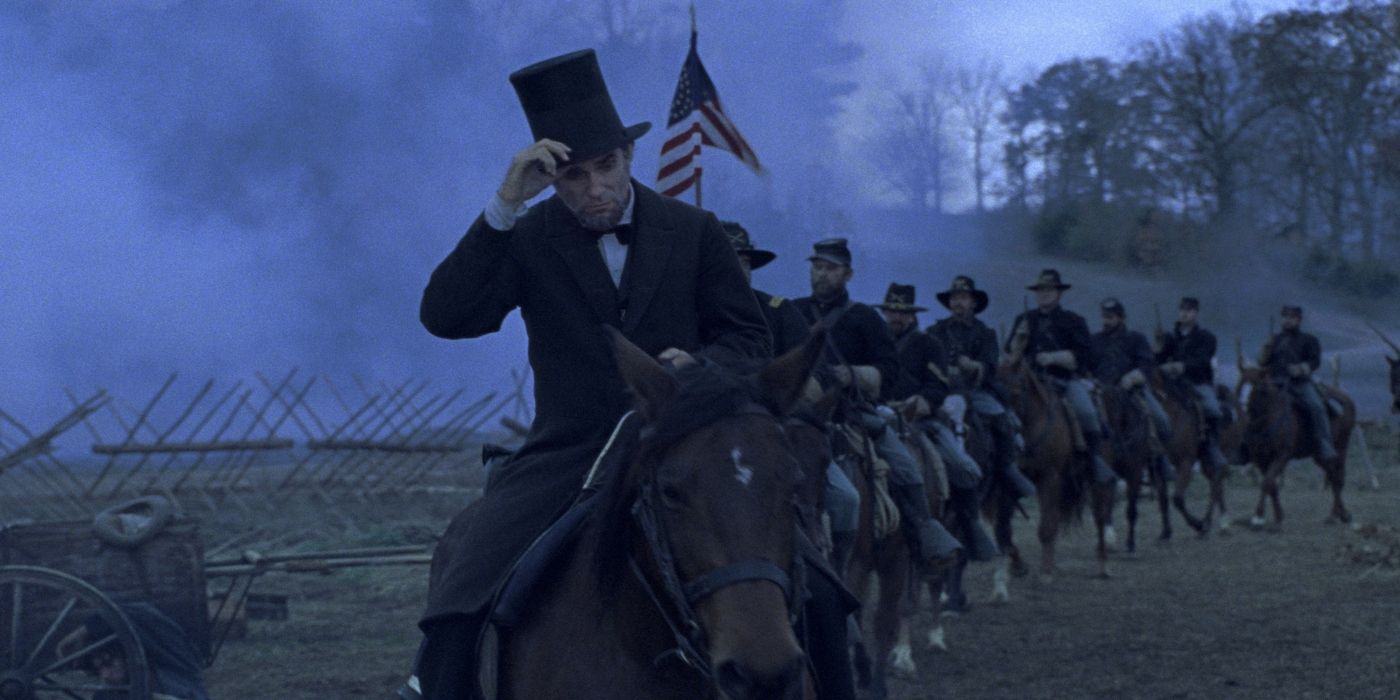
“Do you think we choose to be born? Or are we fitted to the times we’re born into?” In contrast to Gone with the Wind, Lincoln looks at Civil War mythology with a more modern lens, but still a reverent one. Spielberg‘s film focuses not on battles, but on the bruising political fight to pass the 13th Amendment and abolish slavery before the war ends. This is a movie about words: speeches, bargains, threats, ideals. Yet the director remains crowd-pleasing enough to keep Lincoln from being a dry history.
Daniel Day-Lewis also deserves huge credit for this. Here, he gives one of the greatest performances of the 21st century, transforming Abraham Lincoln from marble statue into weary man, worn by war and haunted by compromise. He embodies the 16th President’s humor, melancholy, and moral clarity with uncanny depth. Tommy Lee Jones and Sally Field also shine, but it’s Day-Lewis who dominates, guiding the nation toward justice at terrible personal cost.
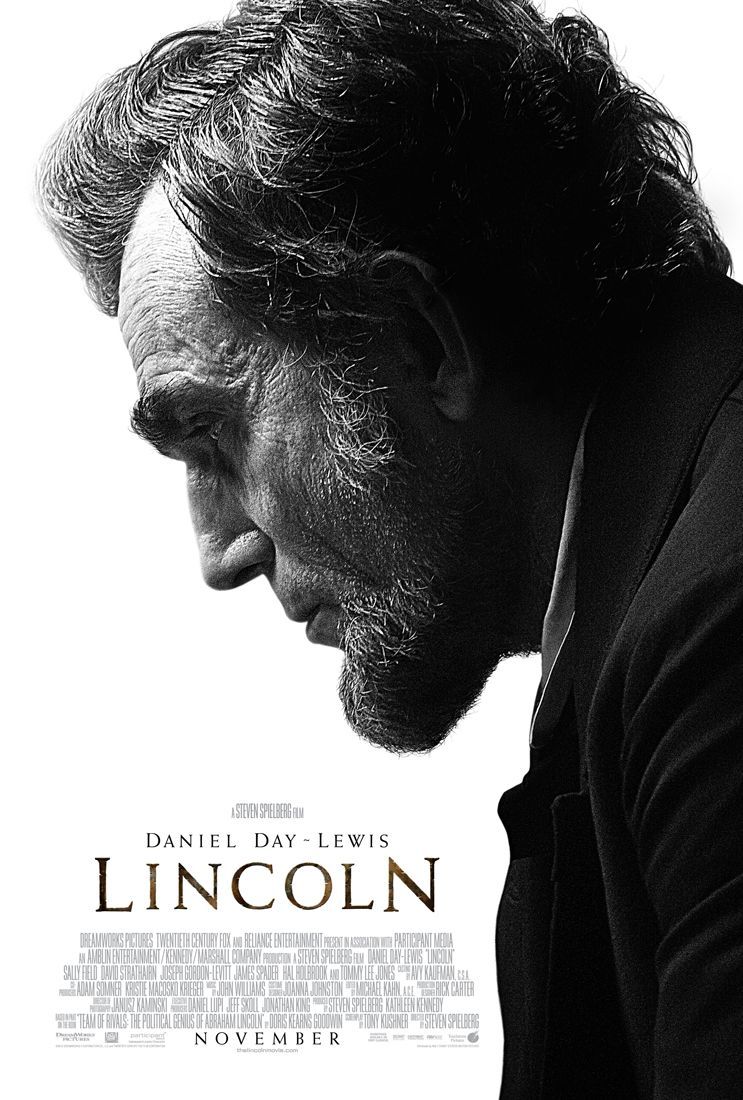
Lincoln
- Release Date
-
November 9, 2012
- Runtime
-
150minutes
2
’12 Years a Slave’ (2013)
Directed by Steve McQueen
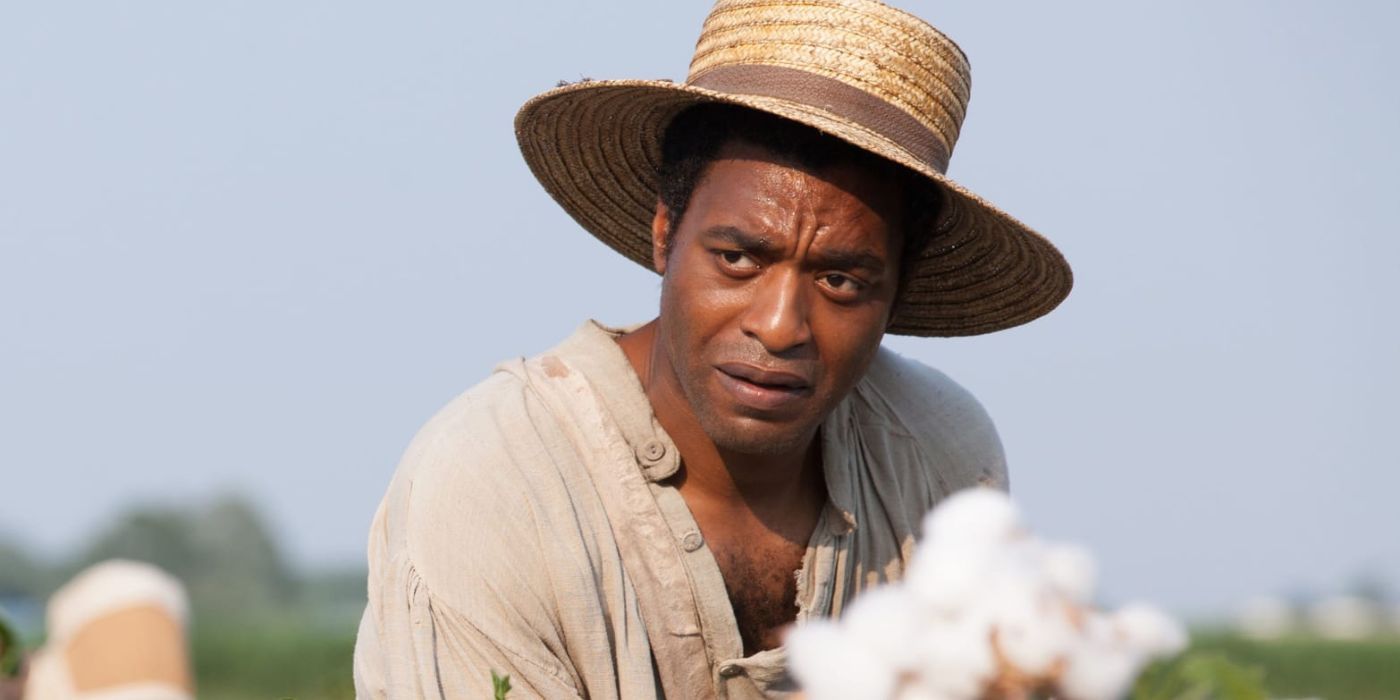
“I don’t want to survive. I want to live.” 12 Years a Slave is not a Civil War film in the conventional sense, but it is the most essential film about the system the war was fought to end. Based on the memoir of Solomon Northup (Chiwetel Ejiofor), a free Black man kidnapped and sold into slavery, it’s a harrowing, unflinching chronicle of American inhumanity. It’s not metaphorical. It’s real. And it’s devastating.
While the Civil War itself appears only briefly at the end, 12 Years a Slave contextualizes the conflict like no other. It is not about the war’s politics but about its cause, something a lot of Civil War movies overlook. Ejiofor’s performance is fittingly soul-rending. The supporting cast, especially Michael Fassbender and Lupita Nyong’o, deepen the emotional stakes. On the storytelling side, director Steve McQueen doesn’t recoil from cruelty, but he also doesn’t exploit it. As a result, violence feels purposeful, not sensationalized.
1
‘Glory’ (1989)
Directed by Edward Zwick
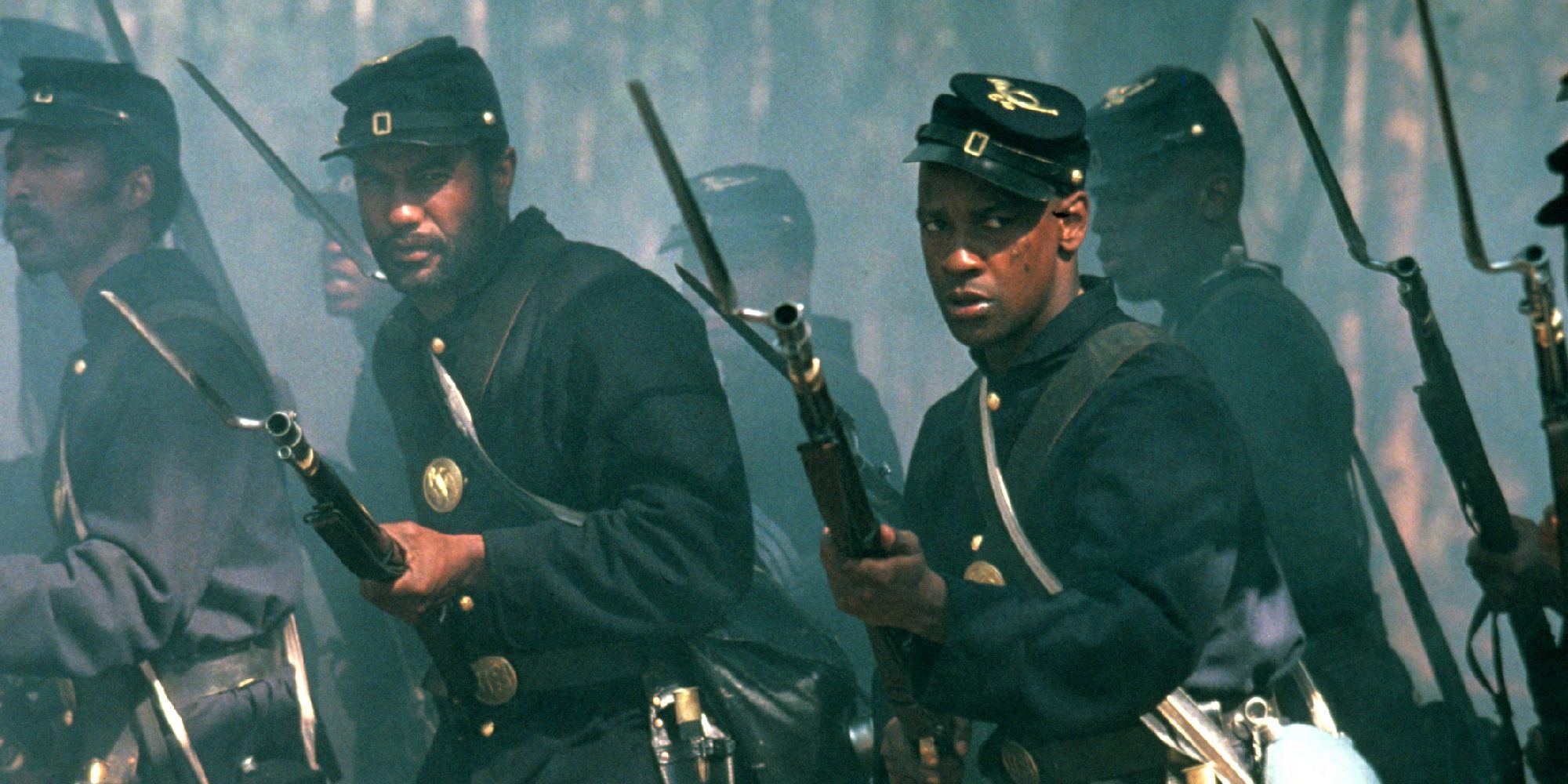
“Give ‘em hell, 54th!” Glory tells the true story of the 54th Massachusetts Infantry, the first Black regiment organized in the North, and the white officer (Matthew Broderick) who led them. Broderick is admittedly a little shaky, but Denzel Washington, Morgan Freeman, and Andre Braugher do the heavy lifting as the unit’s key members. Washington won an Oscar for his role as Trip, a formerly enslaved man whose fury and pride cut through every frame. Freeman plays the moral anchor, and Braugher the intellectual idealist.
Overall, Edward Zwick‘s direction is straightforward but powerful, never letting the heroism feel sanitized. The final assault on Fort Wagner is one of the most stirring and tragic sequences in war cinema. The cinematography is fantastic, and the choral music induces goosebumps. Taken together, Glory doesn’t just honor the 54th, it makes sure we never forget them. This is a film about dignity earned, demanded, and finally remembered.
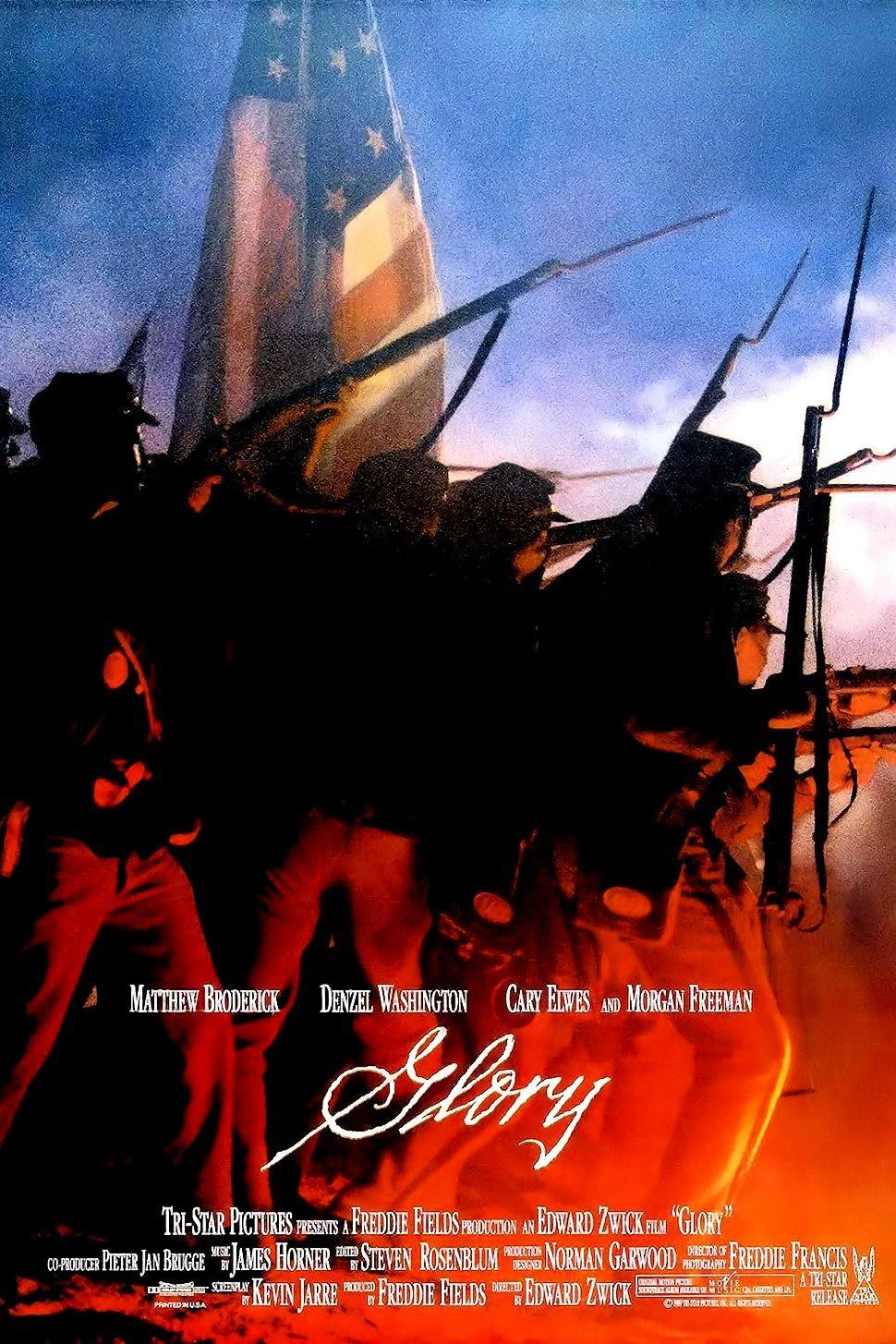
Glory
- Release Date
-
December 15, 1989
- Runtime
-
122 minutes
NEXT: 10 Essential Christopher Walken Movies, Ranked

